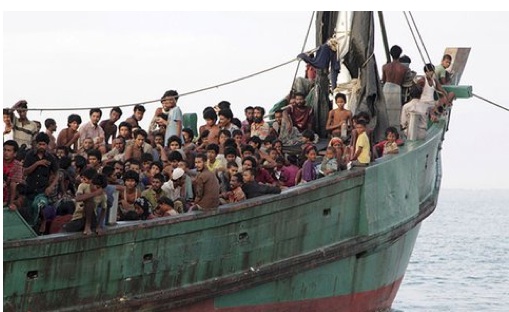Report from Southweat Asis:
Reliance on Coal: The government intends to push ahead with plans to increase Burma’s reliance on coal-fired power plants to 33 percent of the country’s total generating capacity by 2030, according to a deputy minister from the Ministry of Electric Power.
Coal-fired power plants that use clean-coal technology will not be abolished while natural gas, wind power, solar energy and hydro-power electricity projects must be implemented to produce more electricity for the benefit of the public and state.
Burma’s current energy mix sees 69 percent of electricity generated from hydro-power sources, 29 percent from natural gas and just 2 percent from coal.
Environmentalist Win Myo Thu said relying on clean-coal was akin to “breathing with someone else’s nose,” with Burma’s own deposits of the carbon fuel not sufficient for the ambitious expansion of coal-fired power generation.
Immigration: Scores of Burma’s minority Rohingya Muslims are paying off people smugglers and returning to the squalid camps they used to live in after being held for months on overcrowded ships that were to take them to Thailand but did not move far from shore.
Often beaten, and given little food and water, at least 50 Rohingya came back over the weekend after paying boat captains between US$200 and US$300 per person, people in one of the camps said.
A crackdown on the people-smuggling network in Thailand, usually the first stop en route to Malaysia, has meant that at least three ships loaded with hundreds of Rohingya and impoverished Bangladeshis were staying off the coast of Burma, they said. The people in the camp survive off rice distributed by charities. They have no access to adequate health care—nor proper education or jobs.
One man close to local traffickers, who did not want to be identified, said that before the crackdown in Thailand a boat with 10-15 people would leave one of the nearby Rohingya villages and camps every 7-10 days—and there are dozens of them peppered along the Arakan State coast.
